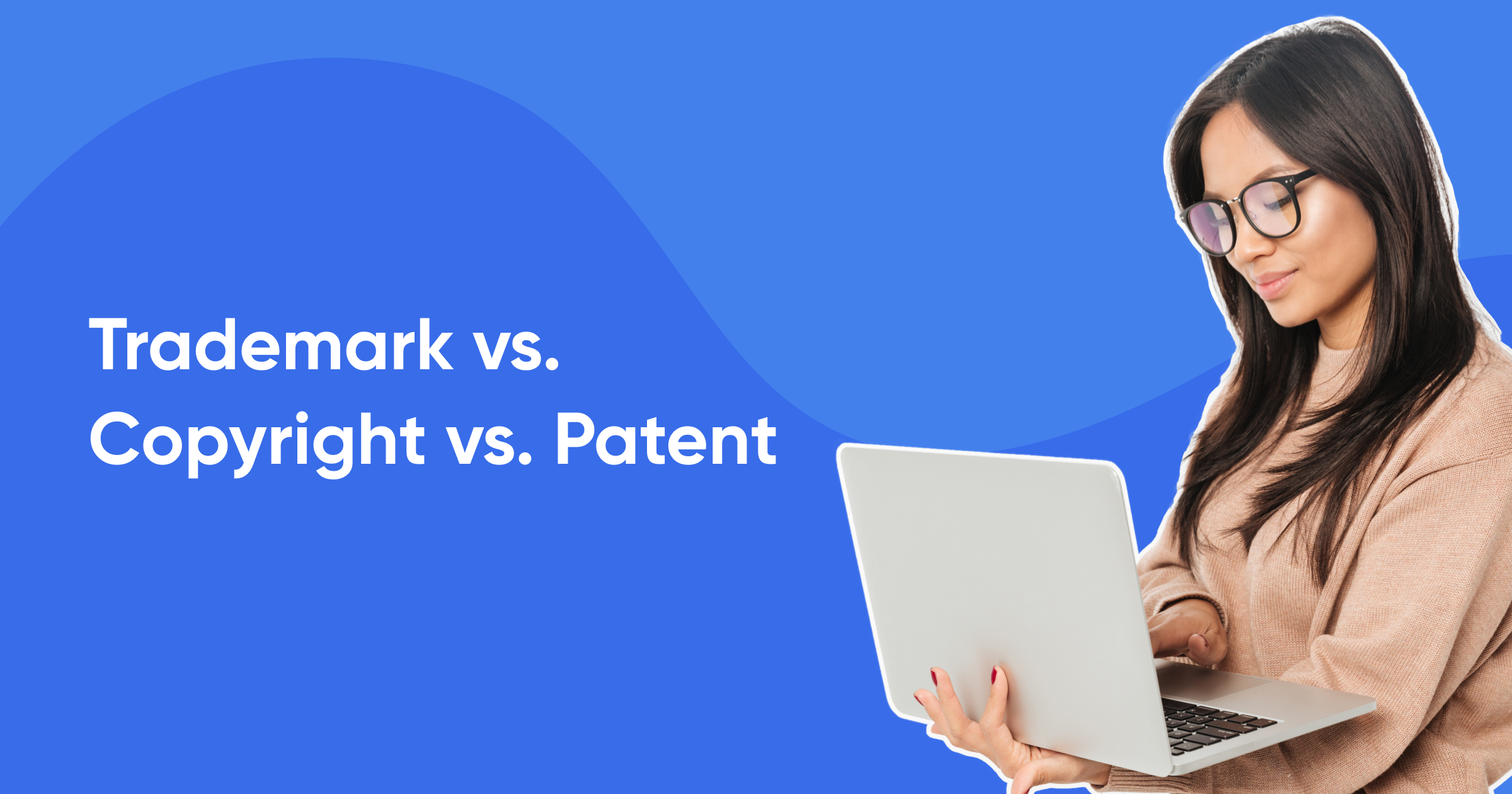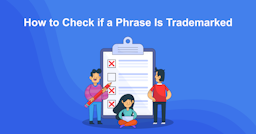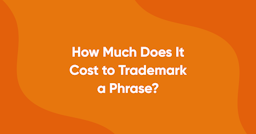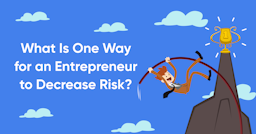Amrusha Chati
01 November 2023 • 4 min read

In today's ever-changing business landscape, safeguarding your brand, creative works, and innovative ideas is crucial. These are all precious assets that must be protected for your business to grow. Fortunately, you can get protection for them in the form of trademarks, patents, and copyrights.
All you have to do is register them with the United States Patent and Trademark Office (USPTO) or the US Copyright Office.
Now, you might find yourself wondering how to do that. The very first step is to figure out what kind of legal protection is right for you. For that, you'll need to understand the differences between a trademark vs. copyright vs. patent. So, let's explore the intricacies of these IP protections for your innovative assets.
Do you want the exclusive right to use a phrase or slogan that's unique to your business? Then, you should know that trademarks serve as the guardians of your brand identity.
Trademarks provide that critical layer of protection for your brand's identity.
As per trademark law, federal trademark registration with the USPTO means nobody else can use yours without your consent. Trademarks include:
They identify the source of your product or service. This ensures that your customers recognize and trust your offerings.
If you want to trademark a phrase or trademark a slogan, make sure it distinguishes you from the competition. This increases your chances of getting USPTO approval and reduces the risk of trademark infringement.
Copyrights are the gatekeepers of original, creative works. It's copyright law that protects written works, music, art, and other creative endeavors.
Unlike trademarks and patents, copyright protection is automatic. The moment you create an original work, it's copyrighted.
But to get stronger copyright protection for your creative assets, you can register it with the US Copyright Office. This creates a definitive record of you as the copyright owner, making it easier to prove your rights in case of infringement. Remember that you can't file a copyright infringement lawsuit without this registration.
Whether it's a written masterpiece, a musical composition, or even a piece of software, copyright is the answer to securing your creative works.
Now, if you have a unique invention or plan, remember that patents are the sentinels of innovation. A patent protects inventions from being copied or used without permission. There are three primary types of patents:
Design patents: These protect the visual and ornamental characteristics of your invention. If your invention's unique selling point lies in its appearance, a design patent is what you need.
Utility patents: These protect the way an invention is used and works. If you've created a new and useful process, machine, article of manufacture, or composition of matter, then a utility patent is your go-to.
Plant patents: In the agricultural sector, plant patents safeguard new and distinct plant varieties.
A patent can give you exclusive rights to your invention for a certain period, usually 20 years. However, patent registration can be a lengthy and expensive process. It's highly advisable to consult a patent attorney to guide you through it.
An essential tool for you, as an inventor and innovator, is provisional patents. To buy time and secure your invention while you work on your formal patent application, you can file for a provisional patent. This is a less formal document. As it's submitted up to a year before your full utility patent application, it grants you "patent pending" status.
However, remember that failing to file the formal application within a year will nullify this status. If that happens, you'll lose potential protection provided by patent law.
You might be wondering what is the difference between a copyright and a patent. The answer is relatively straightforward.
Copyrights are guardians of creative works, while patents protect innovations. Copyrights cover artistic creations, while patents protect novel inventions.
In essence, copyrights are your go-to if you're a writer, musician, artist, or software developer. Patents are for inventors, whether you've created a unique machine, process, or even a new plant variety.
In practice, most businesses need a combination of these intellectual property protections. Trademarks, copyrights, and patents can coexist to protect your unique assets.
To add another layer of complexity, the distinctions between these protections are not always crystal clear. This often leads to questions like:
If you find yourself grappling with such questions, you can seek the help of an attorney who specializes in trademark or IP law.
In the world of IP, these legal tools are the sentinels of your creative works, brand identity, and innovative ideas. By identifying who specializes in trademark or IP law-specific business needs and seeking help from IP professionals, you can ensure that your IP is secured in a rapidly changing business landscape.
Generally, patent and trademark laws don’t apply to the same IP. However in some very specific cases like a uniquely shaped musical instrument, it might be possible to get a patent on the design of the device as well as a trademark for the design as a product identifier.
You cannot make and/or sell a product patented by someone else. This would be considered patent infringement. However, you can sell someone else's patented product if you get a license or contract from the patent owner.
Apps are copyrighted. Mobile applications are considered creative original works and like any other original work are automatically protected by copyright as soon as they are created in a fixed, tangible form.
AUTHOR
Amrusha is a versatile professional with over 12 years of experience in journalism, broadcast news production, and media consulting. Her impressive career includes collaborating extensively with prominent global enterprises. She garnered recognition for her exceptional work in producing acclaimed shows for Bloomberg, a renowned business news network. Notably, these shows have been incorporated into the esteemed curriculum of Harvard Business School. Amrusha's expertise also encompassed a 4-year tenure as a consultant at Omidyar Network, a leading global impact investing firm. In addition, she played a pivotal role in the launch and content strategy management of the startup Live History India.
Related Blogs

Can You Trademark a Font? (It May Not Be...
26 April 2024 • 4 min read

How to Check if a Phrase Is Trademarked ...
24 April 2024 • 4 min read

How Much Does It Cost to Trademark a Phr...
22 April 2024 • 6 min read

How to Trademark an Idea (And Should You...
22 April 2024 • 6 min read

What Is One Way for an Entrepreneur to D...
19 April 2024 • 10 min read